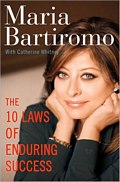.jpg) In “Fooled by Randomness: The Hidden Role of Chance in Life and in the Markets,” Lebanese American essayist Nassim Nicholas Taleb discusses cognitive biases and irrationalities that drive human behavior and decision-making.
In “Fooled by Randomness: The Hidden Role of Chance in Life and in the Markets,” Lebanese American essayist Nassim Nicholas Taleb discusses cognitive biases and irrationalities that drive human behavior and decision-making.
Principal ideas:
- Luck, chance, and randomness play a larger role in the happenings of the world than most people acknowledge.
- People tend to justify random outcomes as non-random and rationalize chance outcomes as results of deliberate actions.
- Correlation does not translate to causation.
- People tend to assume patterns in their analysis even when such patterns do not exist.
- Variations in performance and ability can cause disproportionate rewards, difficulties, punishments, or returns.



 No other holiday boasts a richer variety of rituals, traditions, and customs. Christmas celebrations vary around the world in length and style. The Christians attend midnight or Christmas day Church services and set up a Tyrolean crib at home featuring the town of Bethlehem and the manger to commemorate the birth of Jesus Christ.
No other holiday boasts a richer variety of rituals, traditions, and customs. Christmas celebrations vary around the world in length and style. The Christians attend midnight or Christmas day Church services and set up a Tyrolean crib at home featuring the town of Bethlehem and the manger to commemorate the birth of Jesus Christ. The word
The word 

.jpg)